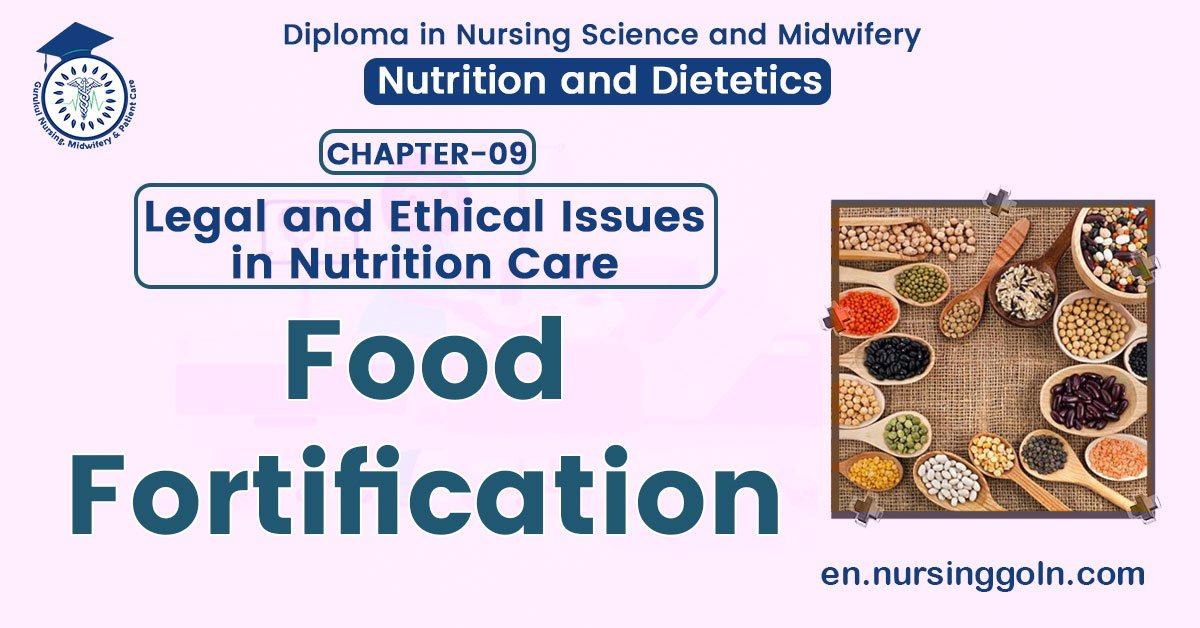Food fortification – This book covers the entire syllabus of “Nutrition and Dietetics” prescribed by BNMC for all Diploma in Nursing Science and Midwifery students. We tried to accommodate the latest information and topics. This book is an examination-friendly setup according to the teachers’ lectures and examination questions.
At the end of the book previous university questions are given. We hope in touch with the book students’ knowledge will be upgraded and flourish. The unique way of presentation may make your reading of the book a pleasurable experience.

Food fortification
WHO has defined food fortification as “the process whereby nutrients are added to foods (in relatively small quantities) to maintain or improve the quality of the diet of a group, a community, or a population.”
(Ref: K. Park/24/704)
Example of food fortification:
1. Milk: it is fortified by the addition of vitamin A and D.
2. Common salt: common salt is fortified with potassium iodate and supplied in areas where goiter is endemic.
3. Wheat flour: fortification of atta with vitamins and minerals, and increasing the protein content by admixture with edible ground nut.
4. Edible oils: fortification of vanaspathi with vitamin A.
Indications of food fortification:
1. When the natural value is lost in the “food processing”, e.g. vitamin B is added in western countries in wheat flour and in rice for eastern countries.
2. To improve the quality of food: Vitamin A, D and iron are added to many baby foods.
3. To prevent the specific disease: lodine -is added to table salts in some areas where goiter is endemic.
(Ref: K. Park/24/697)

